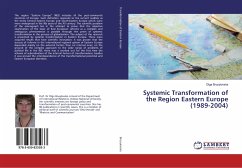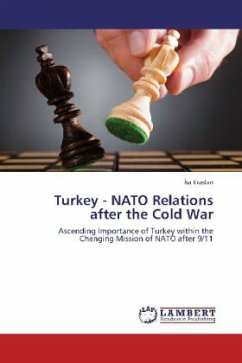
Transforming Partners' Defence: the "Power" of NATO Conditionality
Versandkostenfrei!
Versandfertig in 6-10 Tagen
53,99 €
inkl. MwSt.

PAYBACK Punkte
27 °P sammeln!
The book deals with the topic of external influence of an international organization (NATO) in the context of transformational processes of defence institutions of Armenia and Georgia as the case-countries. The objective of the study was to shed light on the dynamics of institutional cooperation between NATO and the case - countries and to highlight the underlying causes responsible for varying results of national compliance in a defined set of functional areas of defence commonly shared by Armenia and Georgia. The key question is, whether NATO was able to utilize its policy of conditionality ...
The book deals with the topic of external influence of an international organization (NATO) in the context of transformational processes of defence institutions of Armenia and Georgia as the case-countries. The objective of the study was to shed light on the dynamics of institutional cooperation between NATO and the case - countries and to highlight the underlying causes responsible for varying results of national compliance in a defined set of functional areas of defence commonly shared by Armenia and Georgia. The key question is, whether NATO was able to utilize its policy of conditionality to enforce policy change of the respective defence institutions. And the generated hypotheses largely suggest that the degree of domestic compliance is contingent on the convergence of national preferences with gains and benefits expected from the cooperation process with NATO. Our findings run against the general expectation that the more promise and commitment are made, the more results will be achieved. The Georgian case, in fact, indicated the irrelevance of the commitment degree as the only factor responsible for positive performance, i.e. the high degree of implementation effort.












